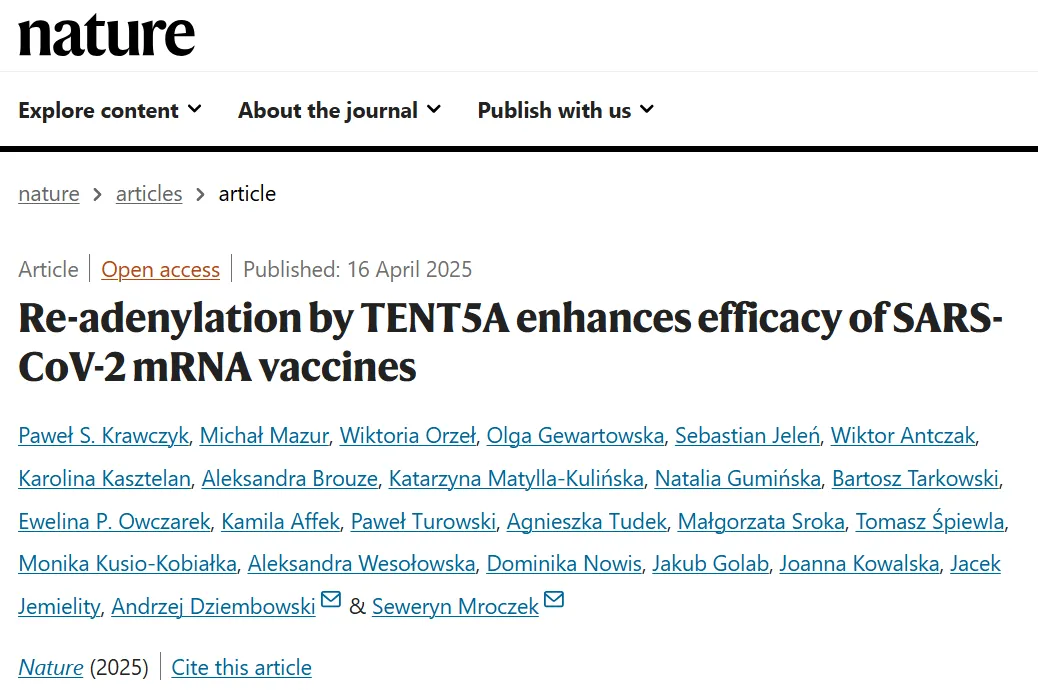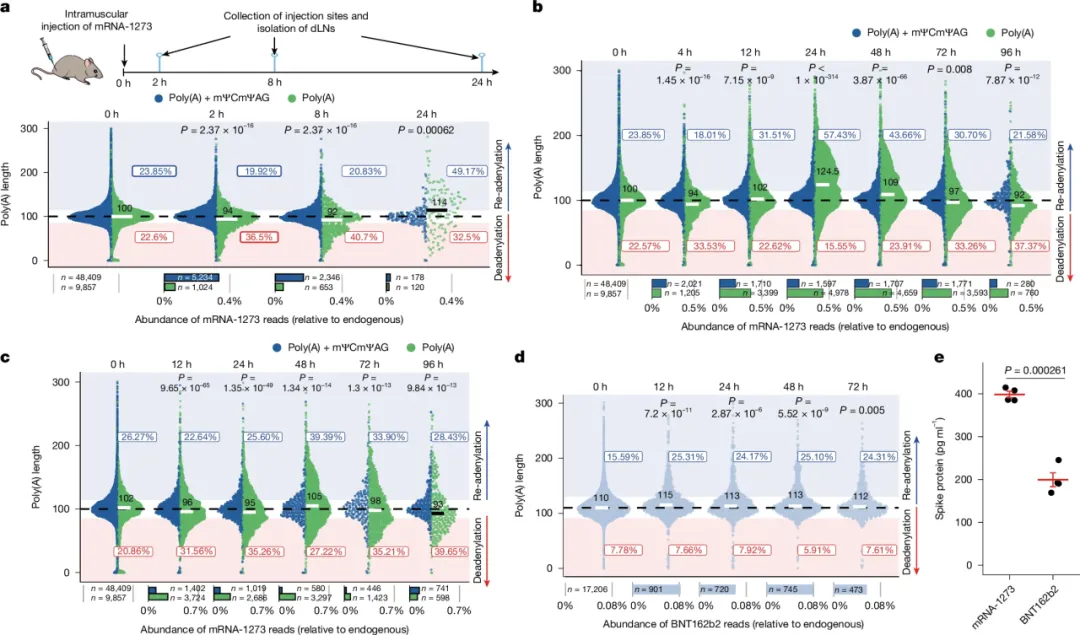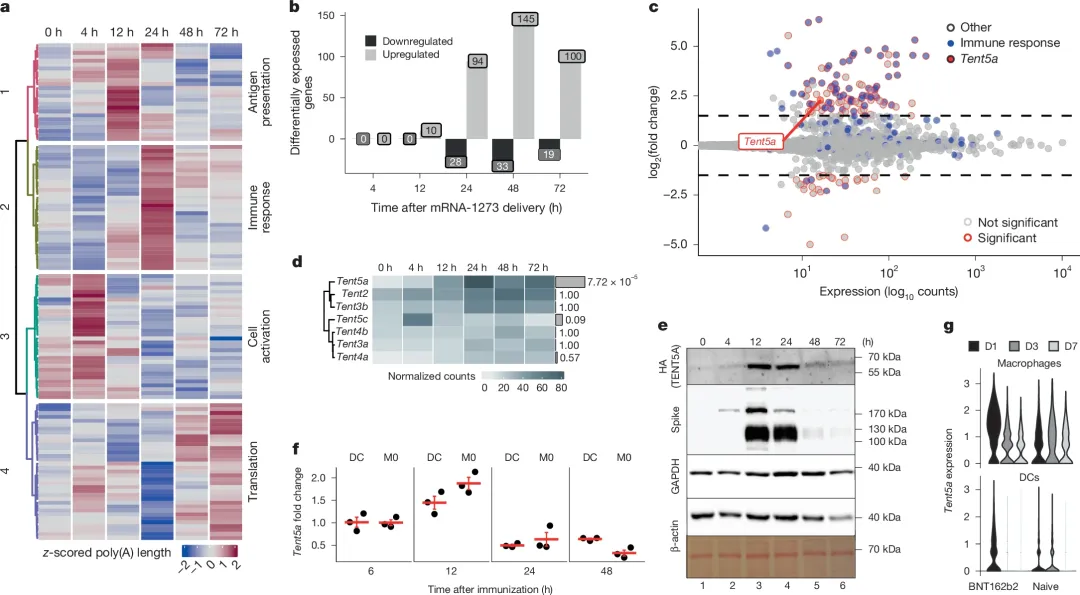

TOP

In the global fight against the COVID-19 epidemic, mRNA vaccines have become the focus for their unique advantages. However, although the degradability of mRNA molecules ensures the safety of treatment, it also poses a challenge to the effectiveness of the vaccine. At the same time, mRNA drugs are a kind of biological agent that has been widely researched and developed, which can be used to treat a variety of diseases, including cancer, infectious diseases and genetic diseases. Due to its potential application value in the field of treatment, the quality and safety verification of mRNA drugs is particularly important.
The length of the poly (A) tail on the mRNA molecule is crucial to the stability and translation efficiency of mRNA. Therefore, in the process of research and development and production of mRNA drugs, it is particularly necessary to accurately detect the poly (A) length on in vitro transcription plasmid templates and mRNA molecules.
On April 17, 2025, the International Institute of Molecular and Cell Biology in Warsaw, the University of Warsaw, the Medical University of Warsaw and the Institute of Biochemistry and Biophysics of the Polish Academy of Sciences jointly published in Nature, "Re-adenylation by TENT5A enh ances efficacy of SARS-CoV-2 mRNA vaccines" research has brought a new breakthrough to this problem - it is found that TENT5A polymerase can prolong the poly (A) tail of mRNA, stabilize mRNA and enhance immunity. The originality reveals the key mechanism of the efficacy of mRNA vaccine.The stability of mRNA molecules by TENT5A enzyme is a universal mechanism, so it has great potential in medicine.

The study found that there is a difference between the poly (A) tail of Moderna's mRNA-1273 and Pfizer's BNT162b2 vaccine. Deadenosine acidification will shorten the poly (A) tail and accelerate mRNA degradation. But surprisingly, when mRNA-1273 enters mouse macrophages, TENT5A enzyme is induced to be expressed, mediating poly (A) tail re-adenosine acidification, significantly extending the length (such as the median increase from 100nt to 114nt after 24 hours of injection), stability and antigen expression Efficiency has been greatly improved. Although BNT162b2 also has a slight extension, it is less efficient than mRNA-1273. This discovery not only reveals the key role of macrophages in vaccine efficacy, but also shows that the dynamic regulation of poly (A) tail is an important direction for optimizing mRNA vaccines.

The poly(A) tail of mRNA-1273 extends in vivo and in vitro macrophages.

mRNA-1273 induces congenital immune response and expression of TENT5A
In the research and development of mRNA drugs, the length, distribution and integrity of poly (A) tails are the core parameters that affect stability and translation efficiency. GentleGen innovates mRNA full-length sequence characterization (high-throughput sequencing method) service. Based on three generations of sequencing technology, it directly hits the limitations of traditional Sanger sequencing and LC-MS methods, and provides all-round solutions for research and development:
In this Nature study, the dynamic changes of poly (A) tails rely on high-precision detection technology. The third-generation sequencing service of GentleGen can meet such needs. Whether it is the monitoring of poly (A) tail extension/shortening in vaccine research and development or the optimization of UTR sequence experiments, it can provide reliable data support and accelerate the verification of the application of new mechanisms such as TENT5A in vaccine design.
If you want to know the details of the third-generation sequencing service of GentleGen mRNA, welcome to consult. Let's join hands with technological innovation to unlock the new future of mRNA drug research and development! It can be sent to: marketing@gentlegen.com.